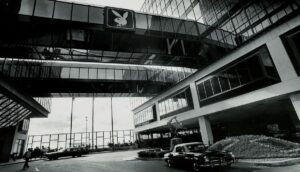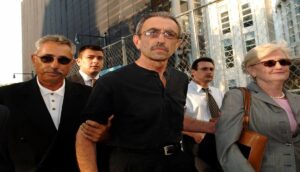The failed Foxwoods Casino Philadelphia project’s effort to get back a $50 million licensing fee it once paid the state continues.
As expected, a federal judge in Allentown sent the case back to bankruptcy court last week.
At the beginning of 2018, the 3rd U.S. Circuit Court of Appeals breathed new life into developers Philadelphia Entertainment & Development Partners, LP‘s attempts to get back the $50 million licensing fee it paid in 2017. It reversed a lower court decision that upheld a 2016 US Bankruptcy Court ruling denying the developers’ claim.
Judge Joseph F. Leeson Jr. originally ruled the bankruptcy court had properly applied standards for fraudulent transfer claims to the case.
In reversing the decision, the 3rd U.S. Circuit Court of Appeals said the bankruptcy court had jurisdiction over the fraudulent transfer claims. However, it gave Judge Leeson the choice of keeping the case or sending it back to bankruptcy court.
Judge Leeson decided to send the case back to bankruptcy court and Judge Magdeline D. Coleman, who originally presided over it in 2014.
The Foxwoods Casino Philadelphia saga
The Foxwoods Casino Philadelphia saga began in December 2006 when the state issued two licenses for casinos to be built in the city of Philadelphia.
One went to HSP Gaming, LP, which planned to build SugarHouse Casino in the city’s Fishtown neighborhood along the Delaware River. After delays due to local opposition to the project, HSP Gaming broke ground on the SugarHouse Casino in October 2009. The casino finally opened in September 2010.
The other Philadelphia casino license went to Philadelphia Entertainment & Development Partners, a development group one-third owned by the Mashantucket Pequot Tribe’s Foxwoods Development Corporation.
The Mashantucket Pequot Tribe owns and operates Foxwoods Resort Casino in Connecticut, the second-largest casino in the US. It was tapped to run what was then being called Foxwoods Casino Philadelphia, a 3,000-slot facility to be built in South Philadelphia along the Delaware River.
The group paid the $50 million licensing fee now in question to the state in 2007. However, neighborhood opposition soon forced them to move the proposed site for the project to The Gallery at Market East shopping center in downtown Philadelphia.
More difficulties with the downtown location and local opposition in that neighborhood soon emerged.
Wynn and Harrah’s in and out
Before breaking ground, casino mogul Steve Wynn was brought in as the project’s new managing partner in February 2010. Wynn immediately made plans to move the project back to its original South Philadelphia waterfront location. Wynn presented his plan to the Pennsylvania Gaming Control Board (PGCB). However, three days later, he announced his company was pulling out.
In October 2010, Harrah’s Entertainment, which has since become Caesars Entertainment, said it was interested in a one-third stake in the project. Harrah’s also planned to take over operations from Foxwoods and run the casino under its Horseshoe Casino brand. It publicly planned a facility with 1,500 slots and 70 table games. However, Harrah’s soon missed a deadline for signing an agreement to take over and gave up on the project.
With no other financing in place, Philadelphia Entertainment & Development Partners missed a series of deadlines for submitting plans and financial information to the state. In December 2010, PGCB decided to revoke its license.
Philadelphia Entertainment & Development Partners appealed the board’s decision but was unsuccessful.
Stadium Casino takes over
The license went up for action and Stadium Casino, LLC successfully bid for it in November 2014. Stadium Casino is a partnership between Greenwood Gaming and Entertainment, owners of the state’s top-grossing casino, Parx, and Cordish Companies, which owns and operates Live!-branded casinos, hotels, and entertainment venues across the US.
It planned to build a $600 million gambling and entertainment complex project in South Philadelphia’s Stadium District.
However, opposition landed the project in court for the next three years. Opponents claimed Greenwood owner Bob Manoukian’s interest in Parx prohibited him from owning more than a one-third of another Pennsylvania casino in accordance with PA casino ownership laws.
The state repealed those casino ownership laws in October 2017.
100,000 square-foot casino and 240-room boutique hotel
What was originally The Philadelphia Live! Hotel and Casino project became Stadium Casino. Developers quickly moved forward with a plan to open up the casino and hotel project by 2020.
The new project will feature a 100,000 square-foot casino with 2,000 slot machines and 150 table games. It will also feature a 30-table-plus poker room. Stadium Casino will also be attached to a 240-room boutique hotel.
Demolition of an existing Holiday Inn hotel to make way for the project has already begun. It is taking place on a site beside the Philadelphia Eagles’ Lincoln Financial Field and the Philadelphia Flyers’ and 76ers’ Wells Fargo Center. The Philadelphia Phillies’ Citizens Bank Park is also right there.
The post Foxwoods PA Casino Fail One Step Closer To $50 Million Refund appeared first on Play Pennsylvania.






